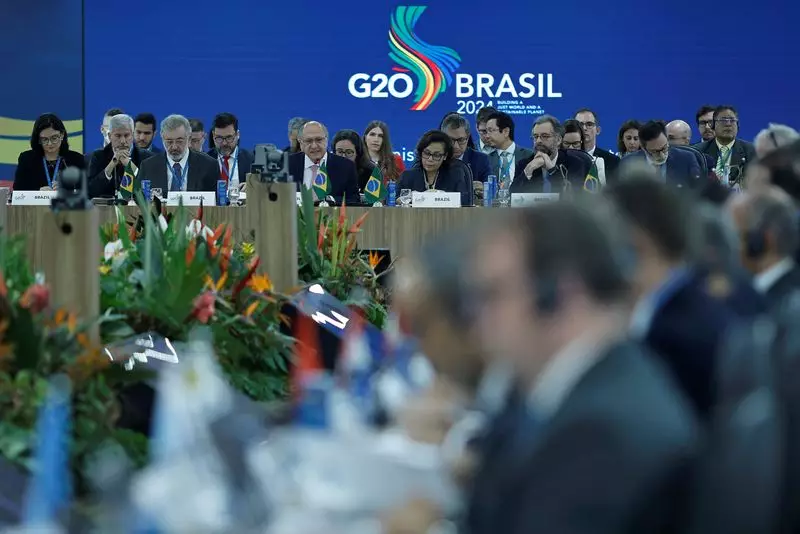In a notable meeting held in Brasilia, ministers from the G20, a coalition of the world’s largest economies, convened to establish a collective framework aimed at enhancing international trade and investment practices. Their discussions highlighted a commitment to fostering sustainable development and significantly prioritizing the inclusion of women in global trade — marking a pivotal moment in international economic discourse.
This G20 summit became the first instance where the explicit integration of women’s participation in international trade was highlighted as a fundamental principle. Brazil’s Vice President and Trade Minister, Geraldo Alckmin, emphasized that Brazilian President Luiz Inacio Lula da Silva championed this initiative, recognizing the necessity of female representation as essential for equitable economic growth. This commitment signals a broader understanding that economic empowerment of women is not merely a social concern but a critical factor for sustainable development and prosperity.
A major point of consensus among ministers was the collective call for the reform of the World Trade Organization (WTO). There was a distinct acknowledgment of the need for a conflict resolution system that is responsive and agile. The ministers expressed a desire for an overhaul that would enhance efficiency in addressing trade disputes and facilitate smoother international economic interactions. Such reforms are essential to bolster confidence among trading nations, especially amid the complex geopolitical landscape.
Brazil, as the host of the forthcoming COP30 climate talks, made significant strides toward advocating for trade practices that also address climate change concerns. The G20 ministers underscored the importance of promoting environmentally sustainable economic development through trade and investment. By urging member nations to align their economic objectives with climate goals, they reinforced the notion that economic practices must not compromise ecological integrity, further integrating sustainability into global economic strategy.
Another salient outcome of the meeting was the acknowledgment of the need for robust global governance frameworks. The necessity for a rules-based, non-discriminatory, and transparent multilateral trading system was reiterated as essential for fostering fair competition and ensuring a level playing field. The ministers collectively reaffirmed their commitment to strengthening the existing multilateral trading frameworks, positioning the WTO not just as a regulatory body but as a central pillar in facilitating a collaborative trading environment.
Despite the constructive atmosphere, ministers navigated the contentious waters of current geopolitical issues, particularly concerning Russia, Ukraine, and the situation in Gaza. While there were diverse opinions on whether such matters were appropriate for G20 discussions, it was clear that geopolitical tensions remain a backdrop for international trade discussions. The ability of the G20 to maintain focus on constructive dialogue, while acknowledging these conflicts, will be vital in their ongoing work.
As the G20 prepares to present these initiatives at the upcoming summit in Rio de Janeiro, the potential for an inclusive, sustainable, and efficient global trading future appears more achievable than ever. By placing an emphasis on women’s inclusion, environmental sustainability, and enhanced governance, the G20 ministers are paving the way for a transformative approach to international trade that could have lasting implications for economies worldwide.

